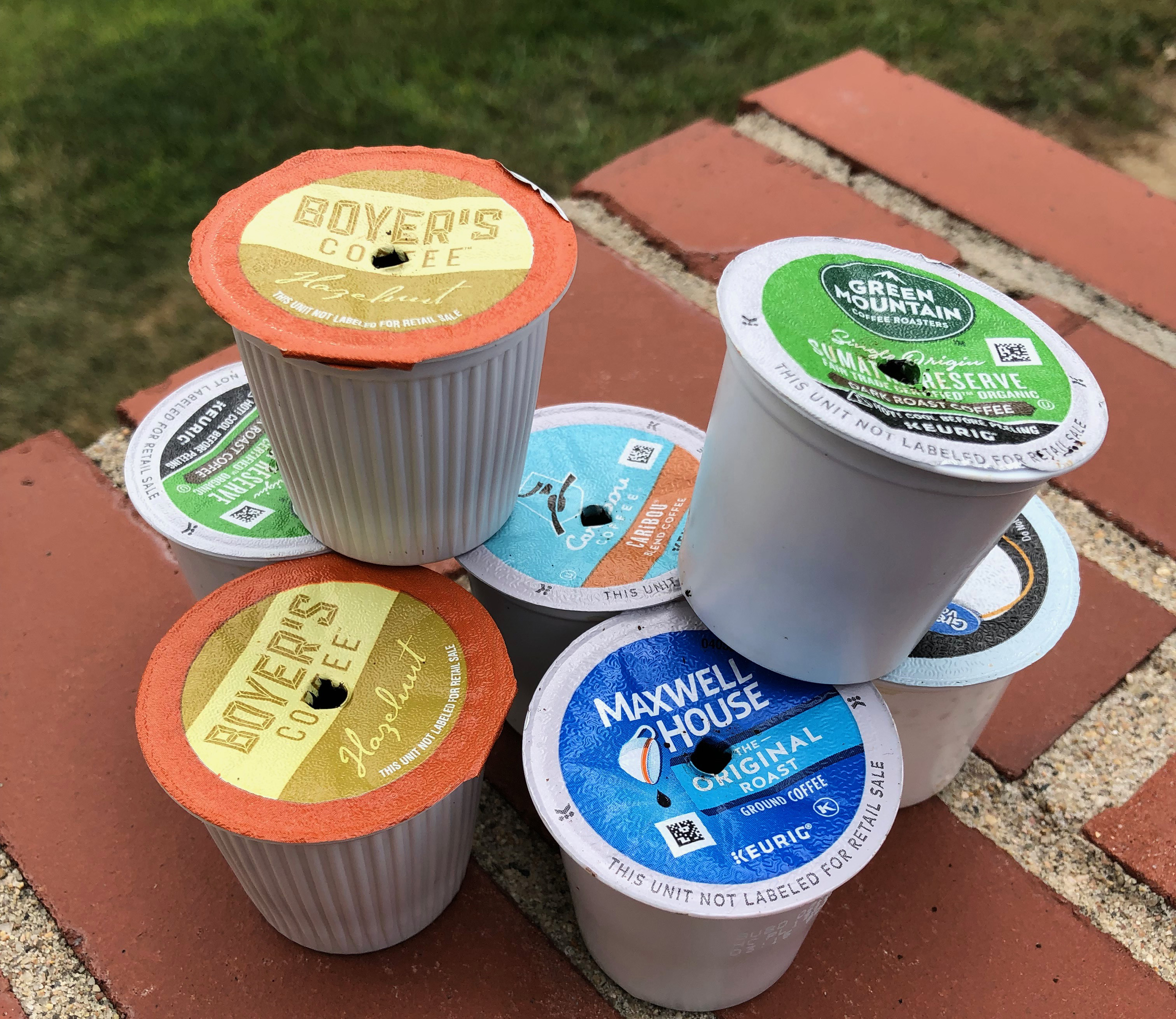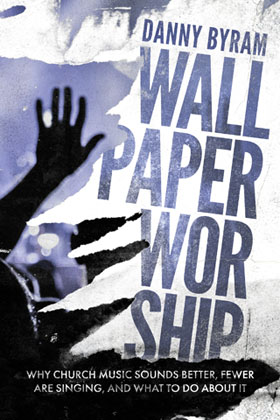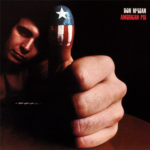loading...

by Danny Byram | Oct 30, 2019 | christianmusic, church, Church Leadership, Contemporary, Liturgical, Music & Songwriting, pastor, Traditional, wallpaper worship, Worship, worship songs, worshipleader, worshipmusic

Ever been to a quiet, classy restaurant with your sweetie? White tablecloth – pressed napkins – two candles – rose in a vase. It’s relaxing just imagining it. Your well-dressed waiter appears and gives you the evening’s specials from memory. After taking your wine order, he leaves to allow you to choose your evening meal. You two are taking in the atmosphere: Low lights – smooth jazz in the background – and staring into the eyes of the only person you want to be with, in this setting.
As you begin your long-awaited conversation, the waiter returns to pour your wine and take your entrée order. He disappears and you continue to talk together, alone. The waiter returns to ask for a clarification, which you politely give. He leaves, your conversation resumes.
The waiter returns to repour your water glasses and asks how the wine tastes. You give him a positive nod. He then puts down his water pitcher, pulls up a chair and begins to explain the differences between California wine and Italian wine. He leaves again. You try to resume your conversation only to be interrupted again by the waiter serving the appetizers. He then gives you a full description of where the pigs, used in your bacon-wrapped appetizer, were raised and fed. He leaves. You try to remember where you left your conversation, only to be interrupted again by the delivery of your entrees. This time the waiter doesn’t leave. He sits in the chair he previously pulled up, watches you eat, and gives you factual information of how the chef prepared your meal.
The point of your evening is lost. The interruptions have broken the intimate conversation you came to enjoy.
Worship can be like that.
On Sunday, at church, the musicians have chosen a great set of songs. They tastefully lead you, the worshiper, to a place of intimacy, devotion, and readiness to receive something spiritual. You are poised. You are ready. Like the soft jazz in the restaurant, the keyboardist is padding quietly.
Suddenly, the associate pastor jumps on the stage: “Everybody having a good time? Hey! How many of you have signed up for the All-Church Retreat? Lemme see the hands. Woo-hoo! Also, we need more workers in the nursery. It’s a great way of serving and you’ll be blessed. Sign up in the lobby. And for anyone who’s into communion, make sure you grab a wafer pak in the baskets by the doors at some point during the service. Now give someone a HIGH FIVE!”
I call this WORSHIP INTERRUPTUS. It happens too often.
Back to the restaurant: You came to have a meaningful, intimate experience with the love of your life – only to have it shanghaied by an obnoxious waiter.
Back to the church: You came to have a meaningful, intimate experience with the Love Of Your Life (Jesus Christ), only to have it shanghaied by a leader who fails to understand the importance of FLOW OF SERVICE, PLATFORM ETIQUETTE, INTIMACY VERSUS INTERRUPTUS.
When we as platform leaders take our people to a vertical point in time – a moment of spiritual readiness – and then immediately reverse that moment, we jerk our congregants from vertical to horizontal – from heaven to earth – from God to one another – from one another to an annoying “waiter” on the platform.
This isn’t rocket science. Yet, its frequency is disturbing.
The Apostle Paul admonishes his confused congregants and frustrated leaders at the church in Corinth: “All things should be done decently and in order.” (I Corinthians 14:40) King Solomon understood the bigger picture: “There is a time to weep and a time to dance; a time to keep silent and a time to speak.”
“Oh, I know,” church leaders say. “Where to put the announcements is a constant struggle.” There are many solutions to this problem and one size does not fit all. But wherever we put announcements, we must not lose sight of the larger purpose of our gathering: to lead the sheep to the living water, so they can actually drink it.
“For everything there is a season, a time for every activity under heaven.” Ecclesiastes 3

by Danny Byram | Sep 27, 2019 | christian worship, christianmusic, church, Church Leadership, Contemporary, Leadership, Liturgical, pastor, praise, Traditional, wallpaper worship, Worship, worship songs, worshipleader

Each morning I put a K-CUP in my Keurig. It produces a decent single cup of morning coffee experience. Then I prepare one for my spouse. I discard the first one and repeat the process. There have been many times I have stared at the plethora of K-CUPs in my kitchen trash, only to grieve their short-lived lives. If you have tried producing another cup of coffee with a used K-CUP, you know the results are less than satisfying. It’s as if the K-CUP says: “Hey! You already used me. I’m done. Move on!”
Modern worship song repertoire can be like that.
Worship leaders are finding it difficult to keep up with the amount of new songs coming into the marketplace. (CCLI has over 100,000 worship songs in its catalog. Spotify reports 40,000 new songs added daily.) Leaders and congregants can get frustrated because there is not enough time to repeat a song to endear it to the hearts of listeners. Too often the result is silent church-goers staring at song lyrics they heard maybe once, somewhere in their week – or was it from last week’s service? With the barrage of material coming at us, many songs are used once and then discarded. K CUP worship songs.
I recently heard of a pastor who told his music team not to use any songs that are over 6 months old. There are a lot of K-CUPs in that worship leader’s trash. I mean, when was the last time you heard the 1990s hit “Shout To The Lord” used in a worship service? Even though I may hear from someone who used it just last week (bless their heart), the point stands: Worship songs we were singing even a few years ago are long gone, out-mode, like used K CUPS: “Hey! You already used me. I’m done. Move on!”

In my WORSHIP WORSKHOP and in my book WALLPAPER WORSHIP, I emphasize the idea that worship (not simply music) is, among many things, our HERITAGE. Harkening to the past is not anti-contemporary. It is ANAMNESIS, the “art of remembering.” Realized or not, when we worship through music or other rituals, we stand on the shoulders of those who went before us.
The classic hymns were the body of song material used by Protestant churches for centuries. Though there were thousands, not all hymns survived. English hymnwriter Isaac Watts (When I Survey The Wondrous Cross, Joy To The World) wrote over 6,000 in the early 18th century. Fanny Crosby, early 20th century American (Pass Me Not O Gentle Savior, Blessed Assurance) wrote over 9,000. Though much of the hymn repertoire is gone, hundreds remain part of our modern heritage of worship music. With today’s songs so quickly discarded, I often wonder if any of our modern songs will stand the test of time? (Be Thou My Vision is cr. 9th century. How’s that for passing the test of time?)

It’s not just our songs (modern or from antiquity) we’ve discarded. We’ve managed to reduce the communion sacrament to a K-CUP. When pastors fail to explain communion to worshipers, and shrink-wrapped communion cups are offered from a basket somewhere in a corner, the implied message: “Take it at your leisure. Put it under your seat or in your purse for later. Take it in the bathroom, the parking lot, wherever or whenever you want.” The only instruction we actually receive: “Make sure to properly dispose of the shrink wrap and the cup in the trash receptacles.” K-CUP Communion.
If we discard most of the songs of our faith in a few years, and we fail to lead people in worship through the richness of experiencing communion corporately, what other elements of our worship heritage are we willing to discard like K-CUPS?
“All that now is will be forgotten in the days to come.” – Ecclesiastes 2:16 (NKJV)
(Let us read your comments, whether you’re experiencing the KCUP phenomenon OR if your worship situation is balanced and fulfilling.)

by Danny Byram | Jan 16, 2019 | Church Leadership, Contemporary, Gratitude, Leadership, Liturgical, prayer, Worship, worshipmusic

Downloading tracks. Downloading charts. Finding the right song in the right key. Shooting videos for social media. Setting rehearsal time. Changing rehearsal time. Your drummer cancels on Friday. Lead female vocalist gets a throat infection. The smoke machine breaks down at stage left. Endless chase of the latest gear. Planning time with the team. Meeting with pastoral staff. Budget cuts. Time restraints within the service. Cut a song. Cut two. Your prepared remarks between songs were criticized in the staff meeting. Don’t say anything anymore – just do the music. You’re told: You’re not a pastor, just a musician.
Congregants don’t see these frustrations behind the scenes. They come and watch each week as you pull it off seamlessly like a pro. Yet you feel you have to hold it all inside. Keep it together. The pressure and frustration of what you once felt was your calling has become a job – or worse, a machine; predictable, produced, even pretentious. You are noticing you haven’t been alone in God’s presence for quite a while. You catch a prayer when you can. Your fuse is becoming shorter. Things that used to not bother you, bother you. That “sin that so easily besets you” emerges again. You confess and move on but it comes back anyway.
Sound familiar? Where is God in the worship grind? What is described above used to be exclusive to larger churches. Now, with social media expectations – a worship-music industry driving its images and products – and church growth formulas nipping at our heels – is it any wonder why churches of 200 or less are experiencing the grind as well?
Jeremiah 33:3 serves as a benchmark to busy activity, massive scheduling, goal setting, and strategic planning. “Call to me and I will answer you, and I will show you great and mighty things which you do not know.” (NASB). So, what is it we don’t know, that we need to know? Our gear is great, our media is moving, our following fantastic, our image immaculate, and our hearts are humble!
Consider the context of Jeremiah 33:3. For the first 32 chapters, God is using Jeremiah as His mouthpiece to speak prophetic words to the people of Israel and their leaders. Though the book is not laid out chronologically, it is apparent this far into the story that Jeremiah is still in need of knowing “great and mighty things” which he hasn’t yet discovered. God requires His “mouthpieces” to call to Him, and then listen.
Finding God in the worship grind will either happen by our own choice or by His choice. God will be found because we are awed by His sacredness – or – we are stopped in our tracks because the gears of the grinder have come to an abrupt halt. I have experienced both. I prefer the former not the latter. Believe me, you do too.
Recommended books: “Letters To The Church” – Francis Chan. “Abba’s Child” – Brennan Manning
Photo by Ben White on Unsplash

by Danny Byram | Oct 29, 2018 | Church Leadership, Contemporary, Leadership, Liturgical, Traditional, Worship, worshipmusic

I’ve always found the phrase – “We’ve always done it this way” – annoying. I remember my parents (dad a clergyman, mom a church musician) using it when it came to church music and worship. Their form was an organ on one side, piano on the other with a choir in robes in the middle. They knew nothing different. No matter where we would attend, in a different town or state, the form of worship – as well as the nomenclature by leaders and worshippers – was identical. This was it for hundreds of years until the Jesus Movement (cr 1968-74) changed everything. Guitars, folk instruments and undergrads in casual clothing began to appear on church platforms. Many times these young, excited believers were escorted out of the church by older church leaders likely grumbling: “We’ve always done it this way.”
I hear the phrase still used today, but not by crotchety, balding believers of a greying generation. It is spoken by church leaders in their late 20s and early 30s. In place of pianos, organs and choir chairs the platforms are filled with drum cages, keyboard rigs and Stratocasters with effects pedals. Overhead are multi colored light rigs, massive video screens, smoke machines and video jib arms. While performing (oops…leading), a shoulder cam operator runs around the stage up into the faces of those performing (oops…there I go again…LEADING). When I talk with these young leaders, to suggest perhaps using an ancient creed – or a variety of instrumentation – or responsive reading of scripture – or an acapella every demographic knows (like Amazing Grace without added lyrics from last year’s “radio worship artist” release), here comes the phrase: “We’ve always done it this way.” Like my parents, they know nothing different. Today, no matter where I attend, in a different town or state, the form of worship – as well as the nomenclature by leaders and worshipers – is identical.

Where we are in the “worship cycle” is the youth group rock bands of church basements from 15-20 years ago have come of age. They are now the decision makers in charge of church budgets. What used to be relegated to youth groups, with dilapidated gear from teenage bedrooms, is now polished, front and center. The vibe is: “we’re in charge now, and we’re gonna do this right.” Just like my parents, the current form is all they’ve known.
Increasingly normal is the online streaming of these worship services (oops…”worship experiences.”) Technology has perfected to allow local church platforms to be viewed online for millions of unnamed, unknown, un-faced fans. Many leaders have told me because their online audiences are exponentially larger than their local congregation, onliners are the group they are actually playing to. The attending congregants are now the studio audience for the larger group, somewhere out there watching and giving offerings on their phones.
What an interesting age in which we are doing church. Even though some young families are walking away to start home churches to “do life together,” the current form is firmly established. A cursory historic observation reveals that trends cycle because of a movement, started in spite of the church’s instituted ways, and usually under the church’s nose. No one knows when or where the next movement will start or how it will bring change. But why it will start is likely found behind the phrase: “We’ve always done it this way.”
“All that now is will be forgotten in the days to come.” Ecclesiastes 2:16
Singer/Songwriter/Speaker/Author Danny Byram has performed on over 100 US military installations worldwide. He toured South Korea 15 times & has performed/spoken to US troops in Iraq, Kuwait, Bahrain, Europe, Central America, South America, the Pacific Rim and aboard many surface vessels. His work earned him the name “The Combat Musician.” Danny produced and directed 26 Promise Keepers Stadium Events for men, including the Clergy Conference (largest gathering of clergy in history) and co-directed Stand In The Gap, Washington DC, which drew over a million men to the National Mall. He produced and directed 36 FamilyLife Arena Events for couples working alongside Marantha! Music and Integrity Inc. Danny and Angela Byram live in Colorado and have 3 adult children and two grandsons.
Photos: Top: Rachel Lynette French@rachellynette Middle: Abigail Lynn@shmabbss

















